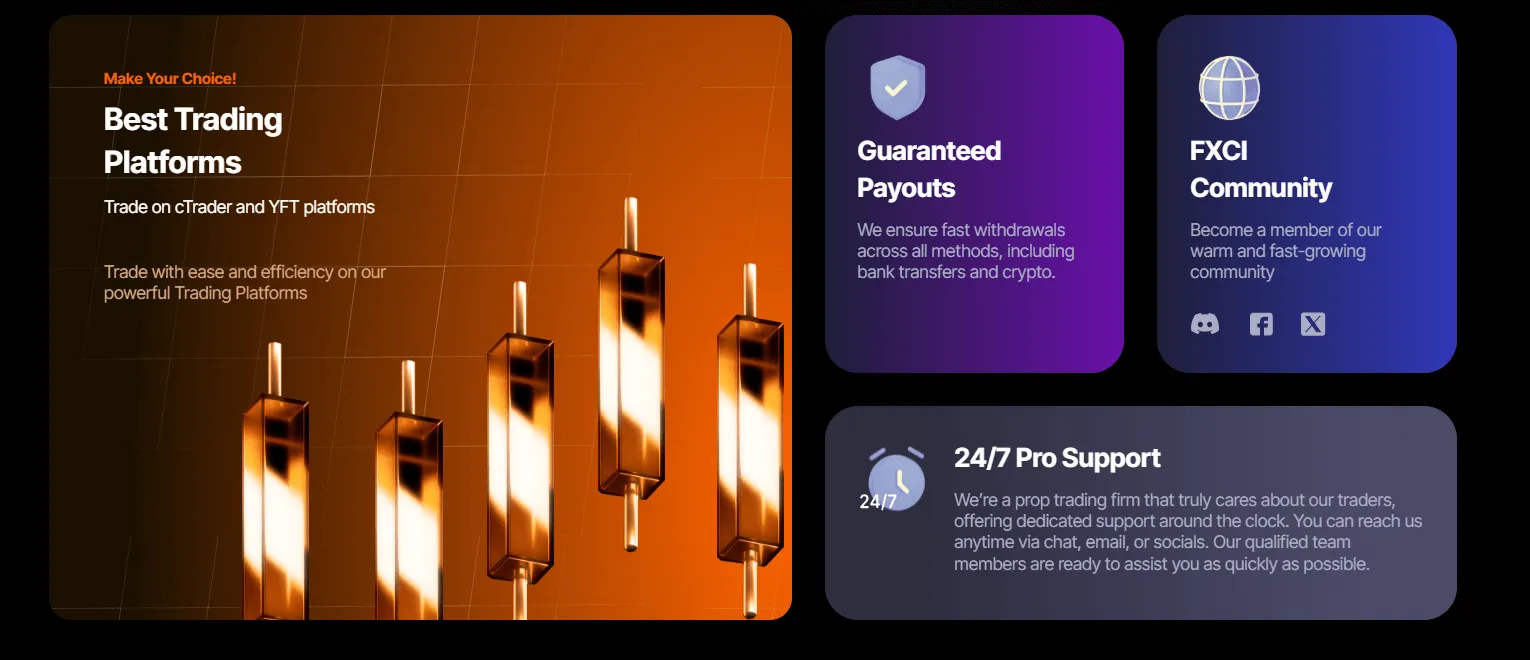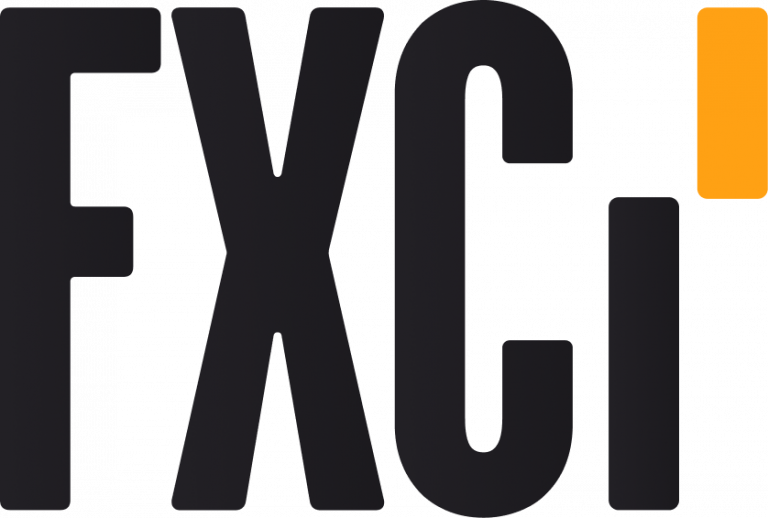Prop Firm Evaluation Process in India
FXCI prop trading firm offers funded accounts up to $300,000 in India. Earn up to 99% profit trading with FXCI’s capital.
Claim 50% Before It’s Gone
Promo «FXCI50» gives you great start in prop trading. Risk-free refund and no time limits with FXCI. Click here 👇
Introduction: What is the Evaluation Process for Prop Firms?
The Prop firm evaluation process is a key step for aspiring traders to prove their abilities and gain access to firm-backed capital. It involves a structured series of stages where traders must demonstrate their skills in trading, risk management, and consistency. The process acts as a filter, allowing firms to assess whether a trader can handle larger accounts without risking their own capital.
For traders in India, this evaluation process offers an opportunity to enter the world of professional trading by utilizing firm capital while keeping a portion of the profits. However, success in this process requires a clear understanding of its stages and the rules set by the firm.
Steps Involved in the Evaluation Process
The evaluation process for prop trading is broken down into three main stages: the challenge phase, risk management evaluation, and account scaling. These steps help firms assess whether a trader has the potential to perform consistently and manage risk effectively.
1. Challenge or Test Phase
In the initial stage, traders are given a demo account with specific profit targets and risk management rules. The goal is to meet these objectives within a set time frame while adhering to strict guidelines. This phase tests the trader’s ability to make profits while managing losses.
Key components of this stage:
- Profit Targets: Traders must achieve a percentage-based profit within a specific period.
- Maximum Drawdown: A set limit on the amount of loss a trader can incur.
- Trading Style Flexibility: Traders may be allowed to use their preferred strategies as long as they follow the firm’s risk parameters.

2. Risk Management Evaluation
After the challenge phase, traders must prove that they can manage risks properly. The evaluation focuses on how well traders adhere to strict risk management rules set by the firm.
Common rules include:
- Max Daily Loss: The maximum loss allowed in a single day.
- Max Position Size: Traders must adhere to position size restrictions to avoid overexposure.
- Leverage Limits: Restrictions on how much leverage traders can use to limit risk.
3. Account Scaling
Once traders pass the evaluation, they are given access to real capital, but with a smaller allocation at first. As they demonstrate consistency and sound risk management, firms may gradually increase their capital.
Benefits at this stage:
- Increased Capital: Traders can scale their capital as they prove their performance.
- Profit Sharing: Traders earn a percentage of the profits, often between 50% and 85%, depending on the firm’s policy.
Advantages of Successfully Completing the Evaluation
There are several advantages to successfully completing the evaluation process, including:
- Access to Capital: Traders can trade with significant capital without risking personal funds.
- Profit Sharing: A portion of the profits earned is shared with the trader, providing a performance-based incentive.
- Training and Support: Many firms offer resources, training, and mentorship to help traders improve.
- Career Growth: Completing the evaluation successfully can lead to long-term trading opportunities with the firm.

Overcoming Challenges During the Evaluation
While the evaluation is a great opportunity, it comes with challenges. Traders face pressure to meet profit targets, follow strict risk limits, and manage their emotions during the process.
Common challenges include:
- High Stress: The pressure to meet targets and maintain risk discipline can create stress.
- Strict Rules: Some traders might feel limited by the firm's risk management rules.
- Emotional Control: Maintaining discipline, especially after drawdowns, is critical for success.
Tips to Overcome These Challenges:
- Develop a Solid Trading Plan: A clear strategy helps minimize stress and ensures consistency.
- Prioritize Risk Management: Always control risk through position sizing and stop-loss orders.
- Maintain Discipline: Stick to the plan and avoid impulsive decisions, especially when under pressure.
| Stage of Evaluation | Description | Key Requirements | Duration |
|---|---|---|---|
| Challenge Phase | Traders prove their ability by meeting profit targets while managing risk. | Achieve profit goals, maintain risk discipline. | 30-60 days |
| Risk Management Evaluation | Traders must show they can adhere to strict risk limits. | Follow daily loss limits, position size rules, leverage restrictions. | Ongoing |
| Account Scaling | After passing, traders begin managing real capital, with potential to scale. | Maintain consistent profits and risk management to increase capital. | After evaluation completion |
Conclusion: Is the Evaluation Process Right for You?
The Prop firm evaluation process offers traders in India a unique opportunity to access professional trading capital. While the process is demanding, it rewards traders who demonstrate consistent profitability and sound risk management practices. For those who are ready to meet the challenges, it can be a great stepping stone to a successful trading career.
Before starting, take the time to prepare by developing a strong trading plan, understanding the firm's rules, and practicing disciplined risk management. This approach will help maximize your chances of success in the evaluation process.
FAQ: Common Questions About the Prop Firm Evaluation Process
How do I pass the Prop firm evaluation process?
Focus on achieving profit targets while adhering to strict risk management rules. Consistency and discipline are key to success.
What is the profit-sharing agreement after passing the evaluation?
After passing the evaluation, most firms offer a profit split, typically ranging from 50% to 85%, depending on the firm.
Can I use my own trading strategy?
Yes, most firms allow traders to use their own strategies, as long as they comply with the firm’s risk management guidelines.
How long does the evaluation process take?
The process generally lasts between 30 and 60 days, depending on the firm’s specific requirements.
Can I increase my capital after passing the evaluation?
Yes, firms typically offer higher capital allocations once you prove consistent profitability and risk management skills.


